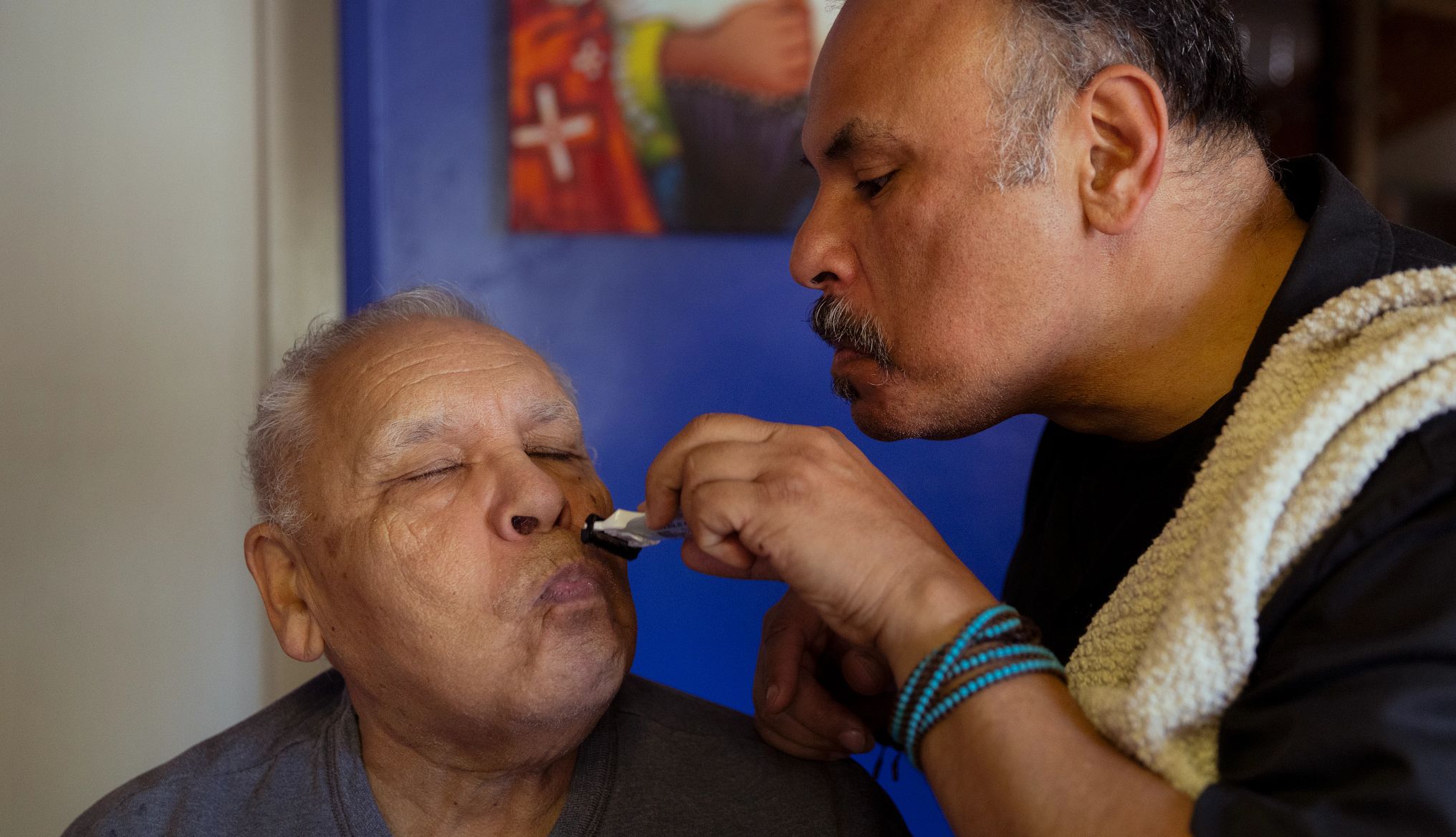
Why it’s critical to have a backup family caregiving plan
- Select a language for the TTS:
- UK English Female
- UK English Male
- US English Female
- US English Male
- Australian Female
- Australian Male
- Language selected: (auto detect) - EN
Play all audios:

LOOKING AT THE BIG PICTURE Mary Andersen, 71, of Tucson, Arizona, has lupus and no caregiving help for husband Lars. At 75, he has diabetes and has experienced some cognitive decline, but
she says he’s still able to play piano and organ at twice-weekly church services. But he’s fallen a few times, she says, and weighs 350 pounds.“He’s 6-4. I’m 5-3,” Andersen says. “I started
thinking what if _I _need a caregiver? How are we going to afford this? We thought we could stay in our house that’s fully paid for and ADA accessible. We make too much for Medicaid..” She’s
consulted with an elder lawyer and a financial planner, which also has been costly. “I had not thought about the caregiver plan. I was looking at the money first,” Andersen says. “I’m
hoping to get ahead of it, but I have not.” Elder lawyers assess the big picture — from the financials to legal documents and possible scenarios to prepare families, says attorney Judy
Flynn, vice president of the National Academy of Elder Law Attorneys, based in Vienna, Virginia. “One bad fall and you’ll be no good to your husband or wife,” says Flynn, of Quincy,
Massachusetts. “It’s not just who will provide the care, but how do we make this sustainable. That way, if something falls through with the primary caregiver, other sources are in place.”
Hiring help (which many do) is costly, even though some is covered because the recipients are on Medicare or Medicaid, are veterans or have other coverage. Still, Randi Kaplan, director of
the Caregiver Support Center at Montefiore Medical Center in New York City, says “the system doesn’t care for people in between Medicaid and wealthy.” A licensed social worker, Kaplan says
the Medicaid-funded Consumer-Directed Personal Assistance Program that allows certain family members to be paid for some caregiving tasks should be broadened to everyone instead of
Medicaid-only. In Del Rio, de Anda, who is divorced and has no children, pays out of pocket for a housekeeper and companion three hours a day to keep her father company, make him breakfast
and help around the house since de Anda works full-time remotely. Her father was diagnosed with Alzheimer’s in 2019. Her younger brother is single and lives in San Antonio, as she used to,
about three hours by car. Their older brother is married and lives in Austin, an hour farther away. “[The housekeeper’s] cleaning house, ironing and doing laundry allows me to care for dad
in the evenings,” she says. “My brothers said, ‘You’re the one with the stay-at-home job.’” But de Anda says a remote job “doesn’t mean it’s conducive for caregiving.” Even caregiving
experts such as Carol Levine, a senior fellow at the New York City-based nonprofit United Hospital Fund, understand it’s not easy to think about a backup plan for caregiving. She was the
sole caregiver for her disabled husband for 17 years before he died. “Yes, we made wills, but we didn’t think beyond that,” she says. “The more intense the caregiving, the more intense the
plan has to be. I did have a kind of plan, but it was not really a good plan.” TAKE ACTION NOW Caregivers are indispensable — until something unexpected leaves them unable to help the family
member or friend who relies on them. Experts Brian Carpenter, Judy Flynn and Randi Kaplan share tips on how create a backup plan: * Find a proxy. Ask someone to temporarily step in as
the secondary caregiver. If the caregiver dies and there’s no replacement, a court might appoint someone to oversee the care recipient. * Realize that a medical power of attorney or durable
power of attorney isn’t the same as a backup plan for daily caregiving. Don’t assume that because those legal documents were completed that they will provide for a substitute daily
caregiver. * Seek advice from an elder law attorney who can assess all aspects of caregiving needs from the financial to the daily tasks associated with being a caregiver. * Consult local
and national organizations that specialize in aging and caregiving, such as your Area Agency on Aging, the Caregiver Action Network, the National Institute on Aging and AARP caregiving. *
Remember that even though a person agreed to be the successor or temporary successor for the caregiver, it’s not a binding agreement. The individual may change his or her mind or that
person’s situation may change, prohibiting the person from filling in. Elder law attorney Judy Flynn says, “You can’t make somebody be a caregiver.”
